Fertility frauds: The latest supplement scam

Jorge Bach - CSPI.
Dozens of supplement makers are targeting women who are trying to become pregnant. We asked 27 companies for the evidence behind their claims.
Many never responded or cited no evidence on their websites. Among them: Conflam-Forte (“improve your pregnancy chances”), Fertility Health (“specifically formulated to aid conception”), and FertilMax for Women (“the most complete and advanced fertility support”).
Others responded, but had no good evidence. So Nutrition Action’s publisher, the Center for Science in the Public Interest, has asked the FDA and the Federal Trade Commission to take action.
Here’s a sampling of what the companies told us.
Ready. Set. Go!
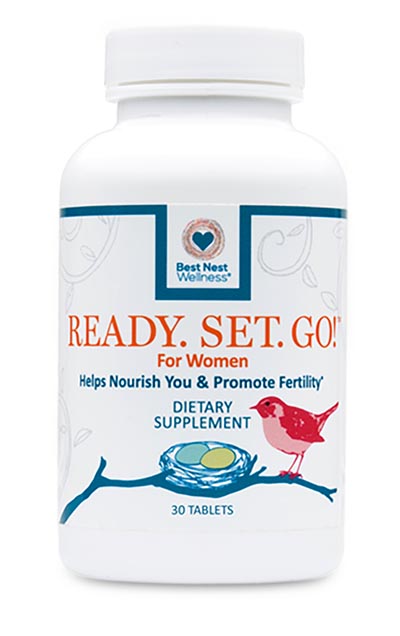
Claim: “Taking charge of your fertility is easy with our supplement.”
Contents: 11 vitamins, 6 minerals, choline, 5 botanicals (red clover blossom extract, chaste berry extract, ginkgo biloba leaf extract, ashwagandha powder, shatavari root powder).
Evidence: None offered on the company’s website. “Our natural formula provides you with the benefits of herbs used for centuries to assist with conception,” the company told us. But what’s the evidence that the 23 ingredients in Ready. Set. Go! actually boost the chances of becoming pregnant? Customer reviews, said the company. “You can actually go through all the reviews to validate,” it suggested.
So we did. Of 64 reviews on its website, only 7 customers said they had become pregnant. Most were still trying. (The company’s Amazon reviews received a failing grade from fakespot.com, which uses algorithms to predict if customer reviews are reliable.)
PregPrep FertilPrep
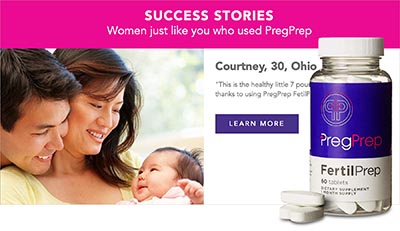
Claims: “Ready to have a baby? Supporting Conception Has Never Been Simpler.” “We hope you conceive with PregPrep on your first try. But sometimes it may take a bit longer than expected, so stick with PregPrep for at least 3 months!”
Contents: N-acetyl-cysteine (NAC), para-aminobenzoic acid (PABA), coenzyme Q10, evening primrose oil, 4 botanicals (chaste berry extract, kale leaf, spinach leaf, red beet root).
Evidence: “We’d like to stress that PregPrep is NOT intended for patients with infertility,” emailed a company representative. Yet the studies they sent us were done in women with polycystic ovarian syndrome (PCOS) and infertility, including some women who were being treated with fertility drugs.
Are there studies in women who are not infertile showing that PregPrep’s ingredients up the chances of pregnancy? (PregPrep’s website doesn’t cite any.) No response. We inquired again. Still no response.
Our final attempt: “Do you have studies showing that the amount of NAC”—the main ingredient—“found in PregPrep increases the chances of pregnancy in women who are not infertile?”
The company’s reply: “May I ask why you are asking so many questions?”
Premama Fertility Support for Her
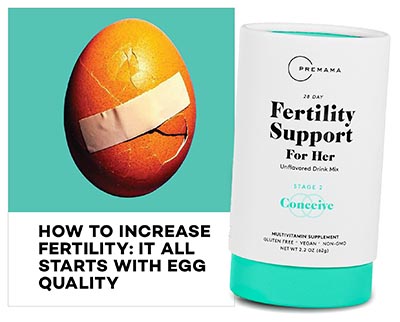
Claim: “Provides natural reproductive support for women trying to conceive.”
Contents: Myo-inositol, folate, vitamin B-12.
Evidence: Myo-inositol (a B-vitamin-like substance) and folate are used by some fertility specialists to treat the infertility caused by PCOS. But in most good studies, the two ingredients don’t help women with PCOS get pregnant.
What did the manufacturer tell us? “I think you’ll be hard pressed to find any supplement company that can definitively say that their product increases the [chances] of becoming pregnant. If you do, I’d be very curious to see.”
Fertil Pro Women
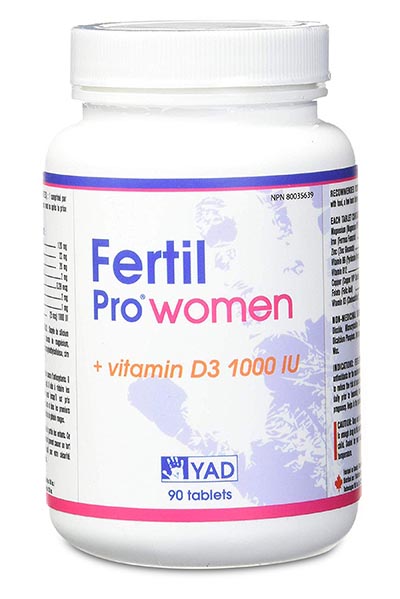
Claims: “Proven to help increase female fertility.” “Health Canada approved.”
Contents: 5 vitamins, 4 minerals, 1 botanical (reishi).
Evidence: Fertil Pro’s website cites five studies. None show that the supplement helps women become pregnant. So we asked the Canadian company if it has any other evidence. “At the moment the studies which are on our website are the ones we have,” said a representative. “Our fertility products are recommended by 90% of fertility clinics across Canada.” Does that mean Health Canada approved a fertility claim for Fertil Pro? Nope. (Health Canada requires credible evidence.)
OvaVite
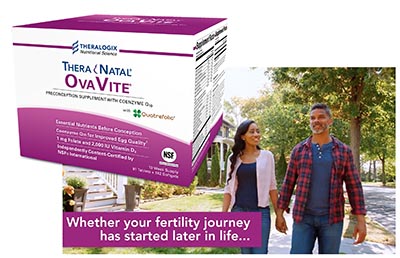
Claim: “Contains highly bioavailable CoQ10, to promote egg quality in women in their mid-30s and beyond.”
Contents: Coenzyme Q10, vitamin E, a prenatal multivitamin.
Evidence: “CoQ10 is a nutrient that supports mitochondrial energy production for improved egg quality,” explains TheraNatal’s website. “Egg quality declines with age, women in their mid-30s and beyond may want to consider TheraNatal OvaVite.”
So there’s evidence that CoQ10 helps women in their mid-30s and up get pregnant? “I do not know of any CoQ10 studies that looked at the outcome of increasing pregnancy rate,” said a TheraNatal representative.
Pink Stork
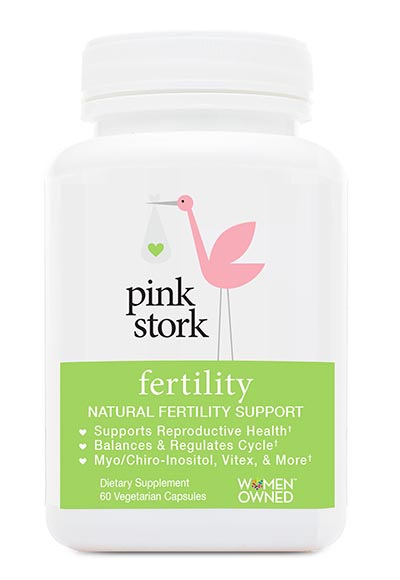
Claim: “The natural, non-invasive fertility support you’ve been waiting for.”
Contents: 10 vitamins, 6 minerals, myo-inositol, D-chiro inositol, coenzyme Q10, choline, para-aminobenzoic acid (PABA), 5 botanicals (chaste tree berry extract, black pepper fruit extract, shatavari root extract, stinging nettle leaf, ashwagandha root extract).
Evidence: None. The company doesn’t offer any on its website and didn’t respond to repeated email requests.
Planning a Pregnancy?
■ Get a pre-pregnancy checkup to address diabetes, hypertension, or other problems.
■ Take a prenatal multivitamin-and-mineral supplement with 400 to 800 micrograms of folic acid to prevent neural tube birth defects.
■ Go to womenshealth.gov/pregnancy for info on getting pregnant, prenatal care, and more.
■ Fertility declines more rapidly after age 35. Get an evaluation if you aren’t pregnant after trying for a year (or after six months if you’re over 35; sooner if you’re over 40).
■ To learn more, go to acog.org/patients and look for “evaluating infertility.”
Tips to Avoid Scams
■ Drugs can’t be sold unless the Food and Drug Administration concludes that they are safe and effective. But the FDA doesn’t evaluate whether supplements are effective.
■ Claims like “supports,” “enhances,” and “maintains” on supplements (or foods) are often backed by little or no good evidence.
■ Check fakespot.com to see if reviews on Amazon, TripAdvisor, Yelp, or other websites are trustworthy.
Illustration: Jorge Bach/CSPI. Photos: Best Nest Wellness, PregPrep, Premama, YAD-Tech, Theralogix, Pink Stork.

